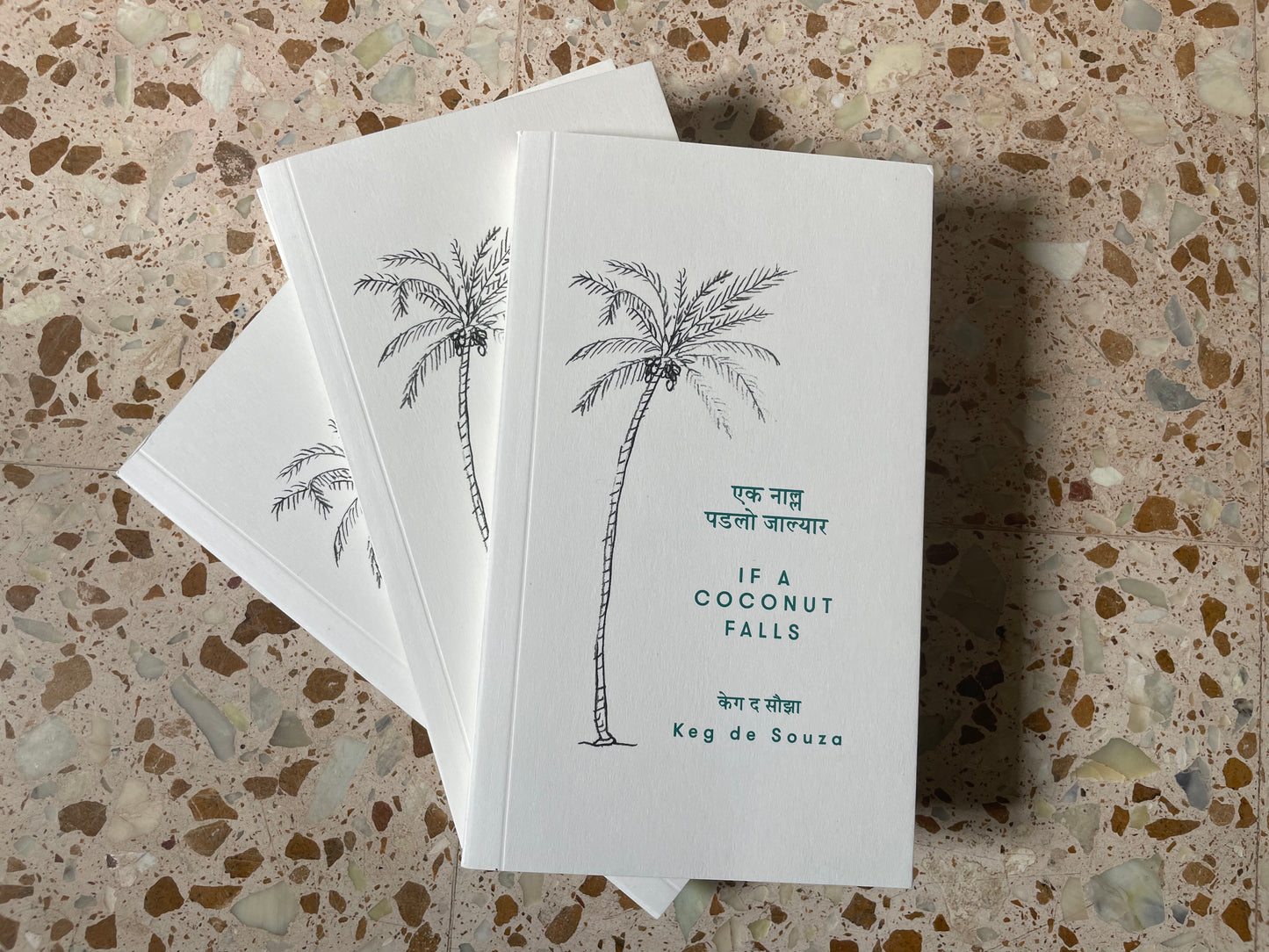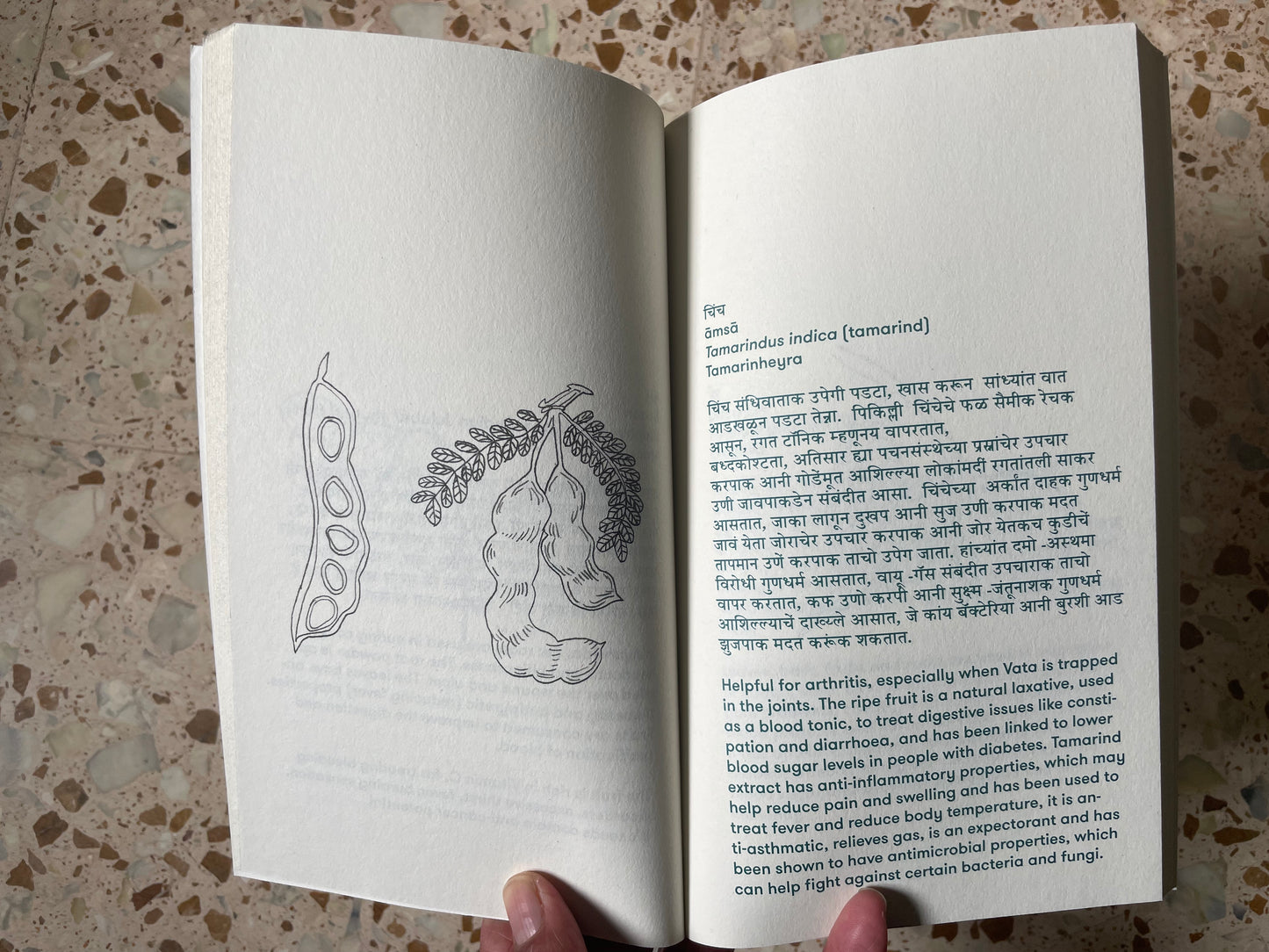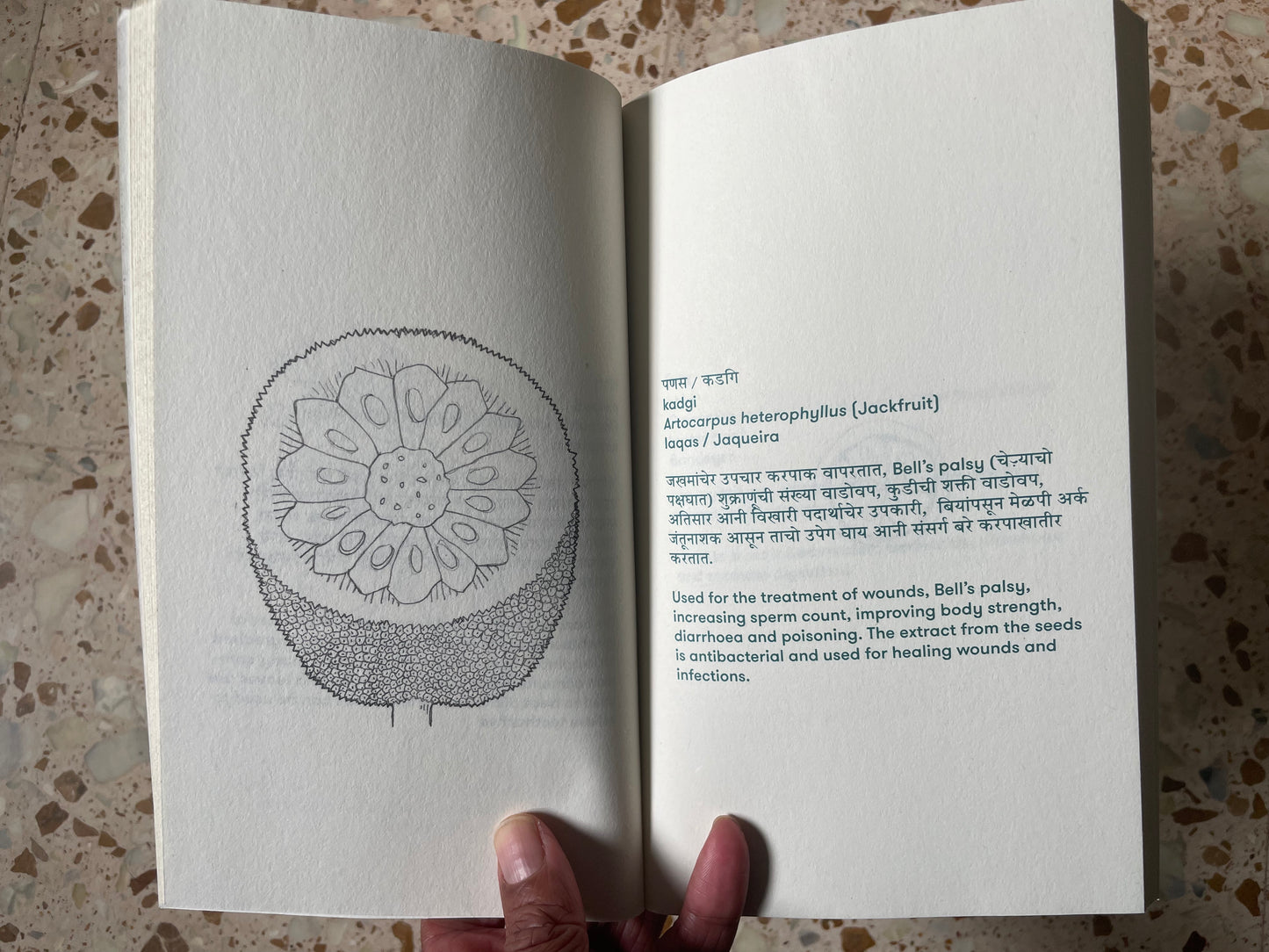Couldn't load pickup availability
If a coconut falls by Keg de Souza is a response to Manuel Erédia‘s Suma de árvores e plantas da Índia intra Ganges (1612), an early colonial attempt of a compendium of South Asian medicinal plants – that has resided in Abby de Tongerlo, Belgium since the mid-18th Century and contains 74 illustrations of Indian plants and descriptions of their medicinal uses.
If a coconut falls interrogates who has access to this archive and how can this knowledge be repatriated to Goa. As a way to distribute and archive this knowledge in a more accessible way, on the lands that these plants grow, the artist has created a ‘mirror’ of the archive in paperback form. The book features original illustrations of the native Indian plants featured in the Suma with descriptions of their medicinal uses alongside them.
The illustrations in the Suma were to give colonial elites (Erédia’s patrons) an accurate idea of the most useful South Asian healing plants. The knowledge was to help colonial officials preserve soldiers’ lives in the unfamiliar tropics, but also to identify medical commodities for economic potential. This version serves to centre local language – (so instead of being in Portuguese like the Suma it is in Konkani first – then English).
The publication is dedicated to the artist’s mother’s cousin, Dr Marie D’Souza who passed away earlier this year, a healer who left the world of Western medicine to live and learn Adivasi traditional medicine. She compiled this knowledge into the book Ādivāsi dāvādūrī = Tribal medicine (1996), as an archive of this traditional knowledge.
The work’s title If a coconut falls takes its starting point from a Goan saying shared by the artist’s mother: ‘If a coconut falls from a tree in Goa it will either land on: a pig; a priest or a de Souza’. What seems like a simple observational adage about the commonality and abundance of these things in Goa, truly embodies a long history of colonisation and adaptation through food, Catholicism and language – even through the Portuguese surname the artist holds.
Keg de Souza is an artist of Goan ancestry who lives on unceded Gadigal land in Sydney. Architecturally trained, she creates social and spatial environments, making reference to her lived experiences of squatting and organising with projects that use plant and food politics, temporary architecture, publishing and radical pedagogy. De Souza also draws from personal experiences of colonialism to inform her layered projects that centre voices that are often marginalised, for learning about Place. Themes of displacement – through lenses such as colonialism and gentrification – filter through her work, sharing (often lesser-known) stories of plants, people and Place.






